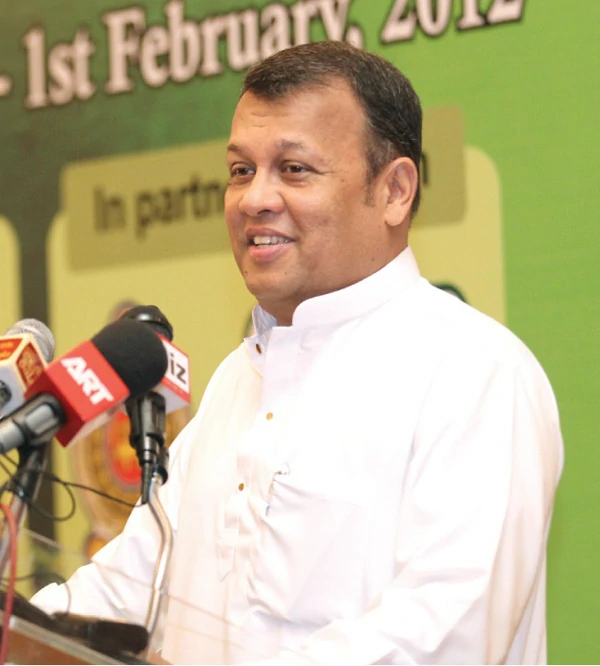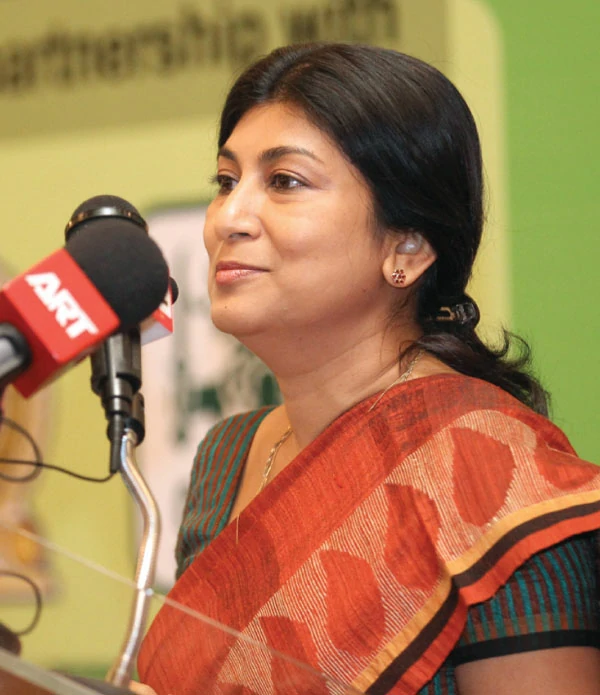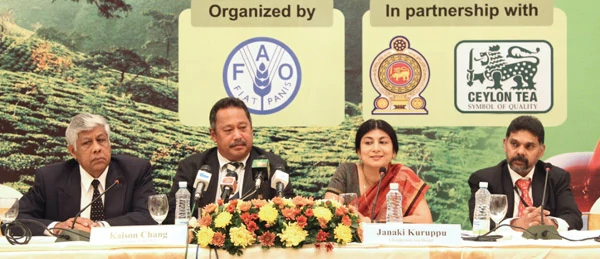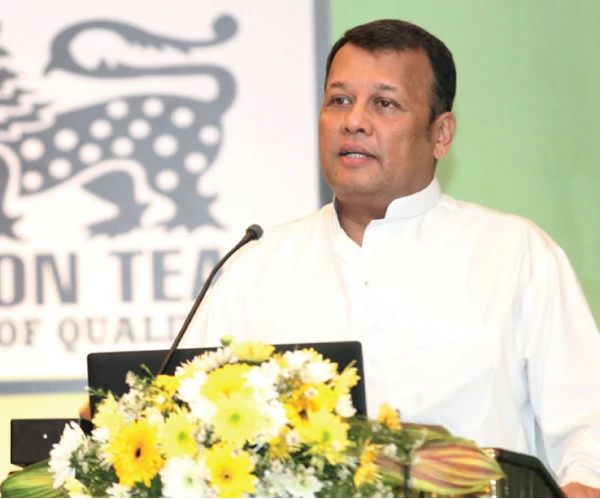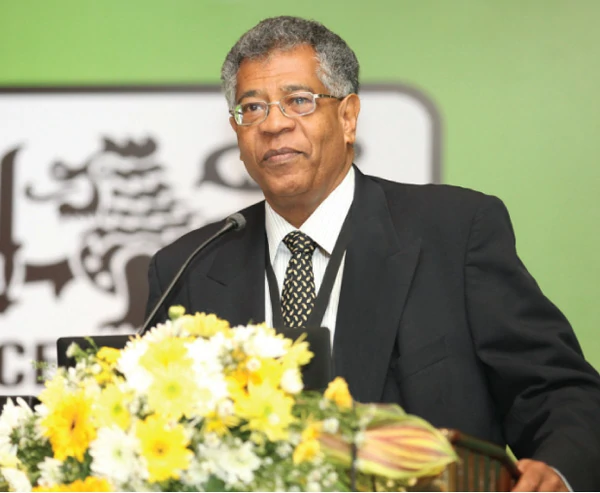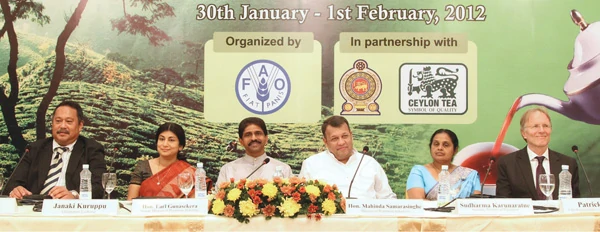
2012 was a year of great significance to the local tea industry which marks 
the anniversary of 145 years of commercial plantation. 
Sri Lanka played host to two prestigious international conferences to discuss the present and future of the world-spanning industry.
The 20th FAO/IGG Session
Sri Lanka hosted the 20th session of the Food and Agricultural Organisation’s Inter Governmental Group on Tea under the auspices of the United Nations. The eighth session of the producer/consumer member meeting of the International Tea Committee held a half-day session on climate change that preceded the global forum.
The official inauguration ceremony was presided over by Mahinda Samarasinghe, Minister of Plantation Industries with the participation of a host of local and international officials including Earl Gunasekera, Deputy Minister of Plantation Industries in attendance. More than 100 delegates from over 20 countries attended the inauguration ceremony, including Kaison Chang the Secretary General of FAO/IGG based in Rome and Patrick Evans the country representative of the FAO local office in Colombo. The inauguration ceremony also witnessed the handing over of the Chairmanship of the FAO/IGG on Tea for the next two years to Janaki Kuruppu, Chairperson of the Sri Lanka Tea Board, 
by Ashok Mangotra, Additional Secretary to the Ministry of Commerce and Industries in India who chaired the position for the past two years.
While the largest contingent of participants was from the home country, the delegations from India, Indonesia and Kenya were also substantial in number. A wide array of topics and issues related to the global tea industry were discussed at length during the deliberation sessions. The current market activities, the progress in selected tea markets, factors affecting demand and supply, analysis of risk management and short to medium term predictions are some of the subjects that were discussed at length.
The FAO/IGG sessions focused discussions on issues related to 
production, marketing, pricing and consumption of tea faced by the global industry players in a single platform, which will steer the way forward for the next ten years.
“The 20th FAO/IGG session gives great prominence and benefits to the tea industry in Sri Lanka. It is the ideal gateway to discuss our concerns while sharing our expertise and knowledge with experts from the international arena. Currently Sri Lanka holds the third place in terms of global exports and fourth place in terms of production. Our aim is to retain the number one exporter 
position, which we held until 2006. 
This will be a gradual transition in the future,” said Janaki Kuruppu, Chairperson of the Sri Lanka Tea Board.
“The 20th FAO/IGG Session Gives Great Prominence And Benefits To The Tea Industry In Sri Lanka. It Is The Ideal Gateway To Discuss Our Concerns While Sharing Our Expertise And Knowledge With Experts From The International Arena.”
The FAO/IGG session included a number of prominent speakers from various countries around the world such as Joseph Simrany, President – USA Tea Association, Bill Gorman, Executive Director – UK Tea Council, 
Dr Choudary, Secretary – National 
Tea Research Foundation of India, Sicily Kariukii, Managing Director – Tea Board of Kenya, to name a few. 
The Rain Forest Alliance, Ethical Tea Partnership, Fair Trade Organisation, 
International Tea Committee and 
Common Fund for Commodities were some of the international observers at the Sessions.
The Colombo International Tea Convention
The Sri Lanka Tea Board in partnership with the Colombo Tea Traders’ Association held the inauguration ceremony of the Colombo International Tea Convention. The ceremony opened the convention, of which the Chief Guest was Mahinda Samarasinghe, Minister of Plantation Industries. On the day preceding the opening ceremony, delegates who were registered to participate in the convention attended a tea party hosted by President Mahinda Rajapaksa.
“As one of the top producers of tea and as one of the top exporters of tea, Sri Lanka is proud to be hosting the Colombo International Tea Convention. Also, this year marks the 145th anniversary of Sri Lanka’s tea industry and this is the first international tea convention to be held during peace time,” said Janaki Kuruppu, Chairperson – Sri Lanka Tea Board. “As this is an international conference, one of the benefits will come from the exchange of views, knowledge and experience of all tea producing countries and tea exporting countries. Therefore, it will be a rewarding exercise for Sri Lanka as well as participants from other countries.”
More than 500 participants, including 157 foreign delegates, attended the working sessions of this year’s Convention, which has been themed Exclusivitea, reflecting the superior quality of Ceylon Tea. Elaborating on the excellence of Ceylon Tea, Michael de Zoysa, Chairman of the Organising Committee of the Colombo International Tea Convention said, “The aim of the Convention is to project Ceylon Tea as the best tea in the world, to highlight the diversity of Ceylon Teas from the point of view of agricultural or climatic areas, the different tastes, the different qualities, and also to emphasise that our industry is way ahead of the rest of the world, in terms of our manufacturing standards and quality controls. 
The usage of weedicides and pesticides is according to the guidelines of the Tea Research Institute, which conform to the minimum residue levels of such chemicals in consuming countries. Our manufacturing standards conform to ISOs and HACCPs. We are also working in partnership with the Ethical Tea Partnership, with Fair Trade Organisations and now the Rainforest Alliance; so we are ahead of the rest of the world, in making our product conform to consumer needs.”
The first session of the Convention outlined the position of Ceylon Tea today. Some of the key speakers addressed topics such as “Exclusivitea as a Value Proposition”, “Sri Lanka Industry Standards”, “Exclusivitea of Ceylon Tea based on superior scientific practices” and “The Value of Logos and Geographical Indicators”. The second session was on the social and environmental responsibility of Sri Lanka’s tea industry. The session addressed subject areas such as “The Social Responsibility of Plantations” and “How Fair is Fair Trade?” Following a speech on “The socio-economic implications of climate change on selected tea producing countries”, a panel discussion closed the session. The last session was on logistics, and speeches touched on 
topics such as “The growing demands and challenges in international transportation” and “It’s packaging that influences the mind”.
During the final session, the theme “Trade and Marketing” was explored, with speeches on “Trends in the beverage market in Russia”, “Specialitea Marketing – Sri Lanka tea brands: a case study” as well as “Tea trends in the US and how tea is doing within Starbucks”.
